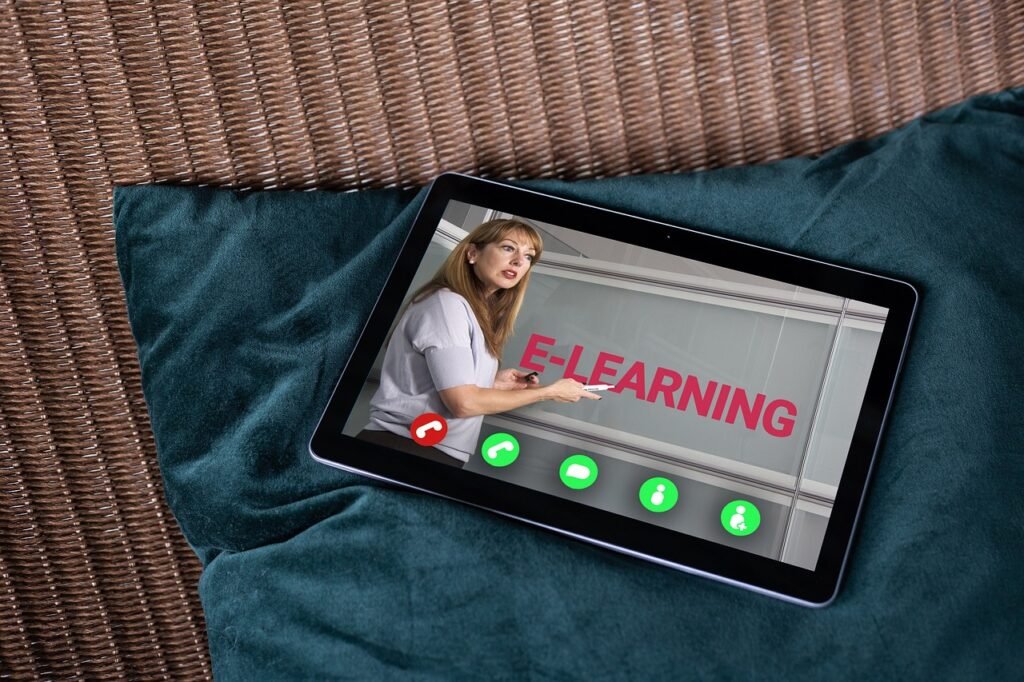
Defining Clear Objectives

Set yourself up for success by defining clear goals.
Think about what you really want to achieve and write it down.
This isn’t just about jotting things down, it’s about having a clear vision.
When you know what you’re aiming for, it gets way easier to hit the target.
Break your goals into smaller steps.
Instead of saying, “I want to get fit,” try something like, “I’ll go to the gym three times a week.”
Smaller steps are less intimidating and help you see progress, which keeps you motivated.
Make your objectives specific and measurable. Instead of “read more,” go for “read one book a month.”
When your goals are concrete, you can actually measure your progress and see how far you’ve come.
It feels great to check things off your list.
Set a timeline. Give yourself a deadline to create a sense of urgency.
Saying “I’ll learn to cook by next year” is good, but “I’ll master five new recipes in the next three months” is better.
Deadlines push you to keep moving forward.
Prioritize your goals. You can’t do everything at once.
Decide what’s most important and focus on that first.
Once you’ve tackled the big stuff, you can move on to other things. It’s all about managing your energy and attention wisely.
Don’t forget to adjust your goals as you go. Life happens, and things change.
If you find that a goal no longer serves you or your circumstances have shifted, it’s okay to tweak your objectives.
Staying flexible helps you keep moving in the right direction without getting stuck.
Celebrate small wins. Every step forward is a step in the right direction.
Give yourself credit for the progress you make, no matter how small.
This keeps your spirits high and makes the journey more enjoyable.
Stay accountable.
Share your goals with a friend or family member who can check in on your progress.
Sometimes knowing someone else is rooting for you can give you that extra push to stay on track.
Visualize your success. Picture yourself achieving your goals. How does it feel?
What does it look like?
This mental exercise can boost your motivation and make your objectives feel more attainable.
Stay consistent.
It’s all about the daily effort.
Even on days when you don’t feel like it, pushing yourself to take small steps can make a big difference over time.
Consistency beats occasional bursts of effort any day.
Remember to be patient. Personal development and growth take time. It’s not an overnight process. Be kind to yourself and understand that setbacks are part of the journey. Keep your eye on the prize and stay committed to your path.
Establishing Positive Routines

Building good habits can really set the stage for personal growth.
Start by identifying what routines will support your goals.
Think about what actions you can take daily that align with what you want to achieve.
Consistency is the key here. Once you’ve pinpointed those activities, make them a non-negotiable part of your day.
Morning routines can be a game-changer. A solid start to the day sets the tone for everything that follows.
Try incorporating a few minutes of exercise, some quiet time, or a healthy breakfast.
Find what energizes you and puts you in the right mindset for the day ahead.
Evening routines matter too.
Unwinding at the end of the day helps you reset and get ready for tomorrow.
Consider activities like reading, journaling, or doing a bit of light stretching.
These can help you de-stress and prepare for a good night’s sleep.
Use reminders to keep yourself on track.
Setting alarms or notifications on your phone can help you remember to stick to your new habits.
This is especially helpful when you’re just getting started and haven’t yet made these actions automatic.
Track your progress. It can be super satisfying to see how far you’ve come.
Whether it’s a habit tracker app or a simple checklist, keeping a record of your daily actions can motivate you to keep going.
Start small. Don’t try to overhaul your entire life overnight.
Pick one or two new routines and focus on those first.
Once they become second nature, you can gradually add more.
This way, you’re not overwhelming yourself and you’re more likely to stick with it.
Mix it up to keep things interesting.
If a routine starts feeling stale, switch it up.
Try a new workout, read a different genre of book, or explore a new hobby.
Variety can keep you engaged and excited about your routines.
Plan for obstacles. Life isn’t always smooth sailing, and that’s okay.
Think ahead about what might get in the way of your routines and come up with strategies to deal with those challenges.
Having a plan B can help you stay on course even when things get tough.
Reward yourself for sticking to your routines.
Positive reinforcement can be a powerful motivator.
Treat yourself to something you enjoy when you’ve consistently followed your new habits for a week or a month.
This gives you something to look forward to and makes the effort feel worthwhile.
Get enough rest. Sleep is often overlooked but crucial for maintaining any routine.
Make sure you’re getting enough shut-eye so you have the energy to tackle your day.
A well-rested mind and body can make all the difference in how effectively you can stick to your routines.
Remember, the goal is to create routines that support your personal development and growth.
Focusing on Self-Care

Self-care is a game-changer for personal growth.
It’s not just about pampering yourself, but taking care of your overall well-being.
Start with the basics: eat well, get regular exercise, and make sure you’re getting enough sleep.
These foundational elements can have a huge impact on your mental and physical health.
Taking breaks is super important.
Whether you’re working or studying, don’t forget to step away from your tasks every now and then.
A quick walk, a few minutes of stretching, or even just a moment to breathe can recharge your batteries and help you stay focused.
Another key aspect is managing stress.
Life can be overwhelming, and having strategies to cope is essential.
Try out different relaxation techniques like deep breathing, meditation, or even hobbies you love.
Find what works best for you and make it a part of your routine.
Don’t underestimate the power of saying no.
It’s easy to get caught up in doing things for others, but it’s okay to set boundaries.
Protect your time and energy by prioritizing what’s important to you.
It’s not selfish; it’s necessary for your well-being.
Make time for things that make you happy.
Whether it’s reading a good book, hanging out with friends, or indulging in a favorite hobby, doing things you enjoy can lift your spirits and help you stay balanced.
Listen to your body. If you’re feeling tired, give yourself permission to rest.
If you’re feeling anxious, take steps to calm your mind. Your body often knows what it needs; it’s all about tuning in and responding.
Consider keeping a journal.
Writing down your thoughts and feelings can be a great way to process emotions and reflect on your day.
It doesn’t have to be a daily thing, but whenever you feel the need to get something off your chest, grab that pen and paper.
Reach out for support when you need it.
Talking to friends, family, or a professional can provide you with new perspectives and solutions you might not have considered.
There’s no shame in asking for help; it’s a sign of strength.
Engage in activities that promote self-love.
Look in the mirror and give yourself a compliment.
Practice gratitude by listing things you’re thankful for each day.
Treat yourself with the same kindness and respect you would offer a good friend.
Lastly, don’t forget to have fun. Laughter is a fantastic stress reliever and mood booster.
Watch a comedy, play a game, or do something silly just for the joy of it.
Your journey towards personal development and growth should include plenty of smiles and moments of joy.
Embracing Lifelong Learning

Always keep that curiosity alive! Lifelong learning isn’t just for school days; it’s for every day.
First off, make a habit of reading. It doesn’t matter if it’s books, articles, or even listening to audiobooks—just keep feeding that brain of yours.
You never know when a random fact might come in handy or spark a new interest.
Dive into online courses.
There are so many platforms out there offering courses on just about anything.
Whether you want to learn a new language, pick up coding, or get better at photography, there’s something out there for you.
These courses can fit into your schedule, making it easy to learn something new without disrupting your routine.
Join clubs or groups that focus on topics you’re interested in.
It’s a great way to meet people who share your passion and to learn from others’ experiences.
Plus, it’s a good excuse to socialize and expand your network.
Don’t forget about podcasts and webinars.
They’re perfect for learning on the go.
You can listen during your commute, while you’re working out, or even while doing chores.
There’s a podcast or webinar out there for pretty much any topic you can think of.
Travel when you can. Exploring new places and cultures can teach you so much.
It’s not just about seeing new sights, but also about experiencing different ways of living and thinking.
Even if you can’t travel far, try exploring new places in your own city.
Talk to people from different backgrounds.
Everyone has a unique story and perspective.
You can learn so much just by listening to others.
It can open your mind to new ideas and ways of thinking.
Stay open to feedback. Whether it’s at work or in your personal life, constructive criticism can be incredibly valuable.
It’s not always easy to hear, but it can help you grow and improve in ways you might not have thought of.
Make time for creative activities.
Whether it’s painting, writing, or playing an instrument, creativity can stimulate your brain and lead to new insights.
Plus, it’s a fun way to relax and de-stress.
Keep a learning journal. Jot down new things you’ve learned each day or week.
It’s a great way to keep track of your progress and to remind yourself of how much you’re growing.
Stay curious. Ask questions and seek answers.
The world is full of fascinating things to learn about, and the more you know, the more interesting life becomes.
Creating a Supportive Network

Surrounding yourself with positive, supportive people can make a huge difference in your personal growth journey.
Start by identifying the people in your life who inspire and encourage you.
These are the folks who believe in you and want to see you succeed.
Keep them close and make an effort to spend time with them regularly.
Join groups or clubs that align with your interests.
Whether it’s a hobby group, a professional organization, or a local community group, these can be great places to meet like-minded people who share your passions.
Being part of a community can give you a sense of belonging and provide you with valuable support.
Don’t be afraid to seek out mentors. Mentors can offer guidance, share their experiences, and help you navigate challenges.
Look for someone who has achieved what you’re striving for and don’t be shy about reaching out.
Most people are happy to offer advice and support to those who are genuinely eager to learn.
Be open to new friendships. Sometimes the best support comes from unexpected places.
Be friendly and approachable, and don’t hesitate to strike up conversations with new people.
You never know when you might meet someone who will have a positive impact on your life.
Nurture your existing relationships.
Take the time to connect with friends and family.
Regularly check in with them and show that you care.
A quick call or message can go a long way in strengthening your bonds and making sure you have a reliable support system.
Be a good listener.
Supporting others is just as important as being supported.
When you offer a listening ear and genuine interest, you build deeper, more meaningful connections.
Plus, being there for others can be incredibly rewarding and can strengthen your network in unexpected ways.
Leverage online communities.
The internet is full of forums, social media groups, and online communities dedicated to just about every topic imaginable.
These can be great places to find support, share ideas, and connect with people from all over the world.
Collaborate with others. Working on projects or goals with someone else can provide motivation and accountability.
Plus, it’s often more fun and productive to tackle challenges together rather than going it alone.
Remember, it’s all about building relationships that are mutual and supportive.
Surround yourself with people who lift you up, and be that person for others.
The right network can provide you with the encouragement and inspiration you need to keep moving forward.
Engaging in Mindfulness Practices

Mindfulness is all about being present in the moment and fully experiencing what’s happening right now.
It can be a powerful tool for personal development and growth.
Start by incorporating some basic mindfulness techniques into your daily routine.
Even just a few minutes of deep breathing can help you center yourself and reduce stress.
Try meditation.
You don’t need to spend hours sitting in silence to reap the benefits.
Even five to ten minutes a day can make a difference.
Find a quiet spot, close your eyes, and focus on your breath.
If your mind starts to wander, gently bring it back to your breath.
There are plenty of apps and online resources that can guide you through meditation if you’re not sure where to start.
Practice mindfulness while doing everyday tasks.
Whether you’re eating, walking, or even washing dishes, try to be fully present.
Notice the flavors and textures of your food, the feeling of your feet hitting the ground, or the sensation of the water on your hands.
This helps train your brain to focus and appreciate the moment.
Gratitude exercises can also boost mindfulness.
Take a few minutes each day to reflect on what you’re thankful for.
It can be anything from a good cup of coffee to the support of a friend.
Writing these things down can reinforce positive thinking and keep you grounded.
Mindfulness isn’t just about the mind; it’s about the body too.
Consider incorporating yoga or tai chi into your routine.
These practices combine physical movement with mindfulness, helping you become more aware of your body and how it feels.
Plus, they’re great for reducing stress and improving flexibility.
Mindful listening is another valuable skill.
When talking to someone, give them your full attention.
Put away distractions, make eye contact, and really listen to what they’re saying.
This can deepen your connections with others and improve your communication skills.
Mindfulness journaling can be a great way to reflect on your thoughts and feelings.
Write about your experiences, what you noticed during your mindfulness practices, and any insights you gained.
This can help you understand yourself better and track your personal growth.
Stay patient with yourself. Developing mindfulness is a journey, and it takes time.
Some days will be easier than others, and that’s okay.
The key is to keep practicing and to be kind to yourself along the way.
Mindfulness can bring a sense of peace and clarity to your life, making it a valuable tool for personal development.
